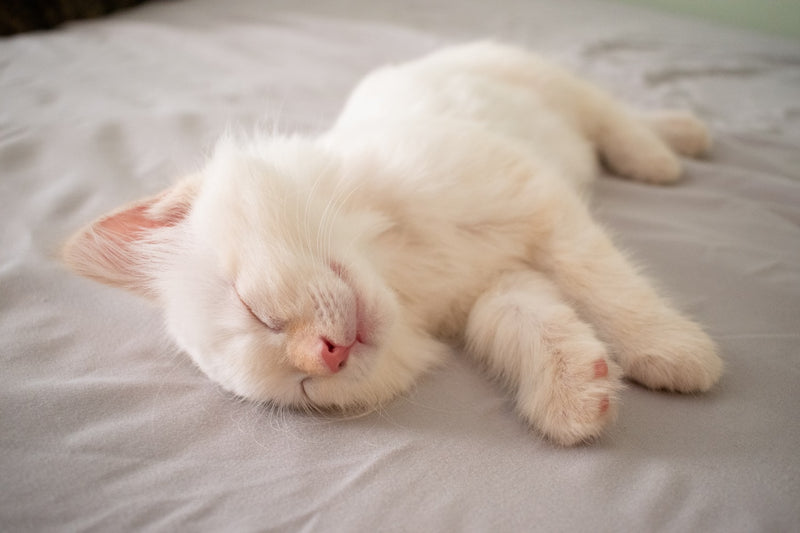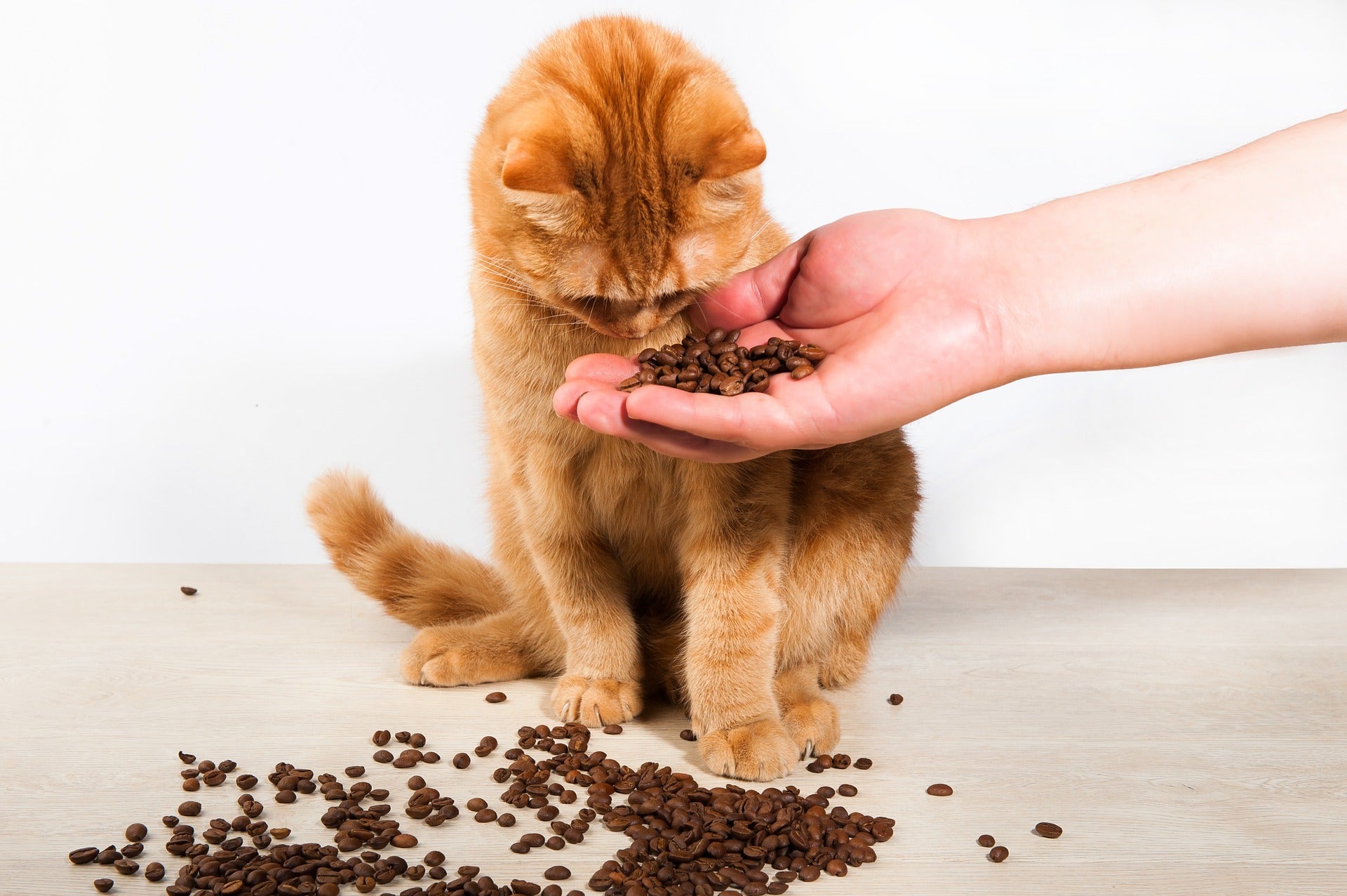
Cats are smart and curious. Very, very curious. Most of the time, cat’s curiosity is harmless. But sometimes they need some extra protection against everyday things you - a mere cat parent - never considered harmful. Here’s our list of top most toxic foods for cats you should be aware of.
Most toxic foods for cats
1. Toothpaste
Dental hygiene is very important for our felines. But we should not share our toothpaste with them! Toothpaste contains xylitol. Xylitol is a sweetener and it’s commonly found in toothpaste and sugar-free gums and mints. While harmless to humans, this substance has been found to be extremely toxic to both cats and dogs.
Why is xylitol toxic to them but not to us? Well, this sweetener is digested differently in pets. When broken down in the cats and dogs, xylitol significantly elevates the levels of insulin in the bloodstream. The level of insulin will be about 6 times higher than for an equal amount of actual sugar.
Furthermore, insulin is a hormone that promotes transport of sugar from the blood to the cells. Such high levels of insulin can lead to hypoglycemia - very low sugar levels in the blood. Hypoglycemia can lead to weakness, vomiting, seizures and coma!
 Most toxic foods for cats: Human toothpaste is toxic for cats and dogs
Most toxic foods for cats: Human toothpaste is toxic for cats and dogs
2. Milk & Dairy
Most cats love drinking milk. But is it good for them? Absolutely not! In fact, most cats can’t digest milk at all. Stephanie Dube Dwilson at CatTime.com explains why:
"Most cats are lactose intolerant, like many humans. This means that they don’t have the enzymes needed to digest the lactose in milk. Lactose is a type of sugar found in milk. When cats drink cow’s milk, they can end up with painful stomach cramps and diarrhoea.
This is because undigested lactose will stay in their intestines, rather than pass into the bloodstream, and end up fermenting because of bacteria. This leads to a whole array of stomach problems that often appear within 8 to 12 hours of drinking the milk.
Not all cats are lactose intolerant, but most are. And there’s no way to tell if your cat is intolerant or not without giving her milk and risking her getting sick. So to be on the safe side, stay away from milk."
 Most toxic foods for cats: It is not recommended to give your cat milk
Most toxic foods for cats: It is not recommended to give your cat milk
3. Alcohol
This one does not come as a surprise. It is a known fact that alcohol is not a healthy substance for any animal. In humans, but also in cats, alcohol can cause nausea, diarrhea, tremors, decreased coordination, difficulty breathing, comas or even death.
But why is the risk even higher for cats? Simply because cats are so much smaller than us and require significantly lower levels of alcohol to experience all the negative symptoms. For instance, a few spoons of liquor are not considered a lot for humans. But for cats, this can sometimes be enough to cause a coma!
Remember, it isn’t just the alcoholic beverages you need to be on a lookout for. Your cat should also stay away from raw dough. Raw dough will either cause an expansion in the stomach or it will create alcohol in the gut.
4. Chocolate & Sweets
It is widely known that chocolate is toxic to dogs. It is less known that it has the same effects on cats too. It is methylxanthine in the chocolates that cause the problems.
"Chocolate contains substances called methylxanthines, which can cause vomiting and diarrhea, high body temperature, muscle tremors, abnormal heart rhythm, abdominal discomfort, increased thirst, and seizures. Methylxanthines are also found in caffeinated beverages and should be avoided. See your vet if your cat experiences any of these symptoms. As a general rule of thumb, darker chocolates are more dangerous than milk and white chocolate." – explained Hill’s.
 Most toxic foods for cats: Your cat shouldn't eat sweets and coffee
Most toxic foods for cats: Your cat shouldn't eat sweets and coffee
5. Raw Meat
Raw meat and raw eggs can increase the risk of Salmonella or E. coli poisoning both in humans and our pets. These bacteria can also be transmitted from animals to humans. Symptoms of the poisonings with these two bacteria vary but can include vomiting, diarrhea, and lethargy. It is safer to cook the meat you would like to feed your cat to a safe temperature in order to prevent the risk of bacterial infections.
6. Grapes & Raisins
Grapes and raisins can cause illnesses in cats and can even lead to kidney failure. According to Hill’s, "Within 12 hours of ingestion, vomiting sometimes occurs. Other signs that can show up within 24 hours include lethargy, diarrhea, reduced appetite, abdominal pain, decreased urination and abdominal pain." It is actually unknown why exactly this fruit is so bad for cats - perhaps something in their DNA is to blame. Basepaws is on a mission to figure out this, and many other things that make our pets unique..
7. Onions
Onion in all its forms is not recommended for cats. Onion leads to breaking down of cat’s erythrocytes which further leads to anemia. Small dosage probably won’t cause too much trouble, but large quantities at once or regular intake can cause poisoning.
8. Caffeine
Caffeine can cause restlessness, rapid breathing, tremor and other symptoms in our cuddly friends. Large doses of caffeine can be fatal for them. Caffeine can be commonly found in coffee, tea, cocoa, chocolate, cola drinks, energy drinks and some medications.
 Most toxic foods for cats: Your cat should not eat/drink coffee
Most toxic foods for cats: Your cat should not eat/drink coffee
9. Bones
Bones, together with fat trimmed off meat, can be dangerous for cats too. Fat can upset your cat’s stomach and cause vomiting and diarrhea. And a bone can cause choking, splinters, cuts or obstructions in the digestive system.
10. Human medicine
Even though it comes without saying that human medicine is dangerous for cats, most common cause of poisoning in cats is exactly this. It is very important to keep your medicine away from both children and your pets. Ingredients such as acetaminophen or ibuprofen are common in pain relievers and cold medicine. And they can be deadly for your cat.

If your cat consumed any of the substances described above it is important to consult with your vet immediately. Our cats are our family and we are here to look out for them. Do you know any other toxic everyday things you would like to add to our list? Share, share, share with us!
